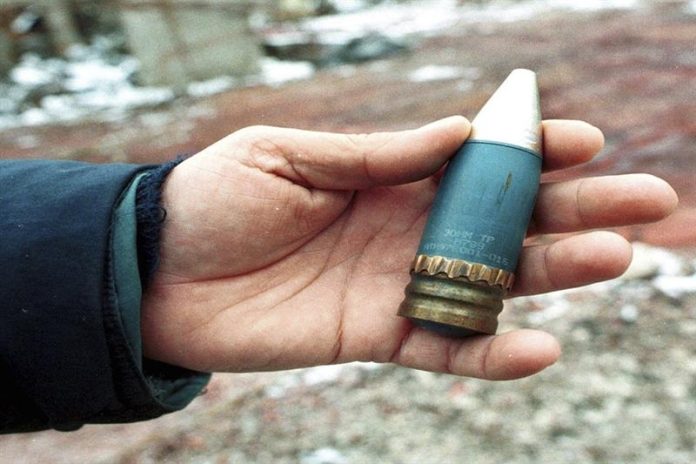The White House sends armor-piercing ammunition with depleted uranium to Ukraine for the first time. Earlier, it supplied Kyiv with cluster munitions despite the threat to civilians.
The Russian-Ukrainian confrontation is a global-scale catastrophe. Ukraine lost 70,000 Ukrainians killed and about 120,000 wounded, according to the New York Times. The American newspaper says that Russian losses are much higher, although the Kremlin does not reveal exact figures.
The warring parties, including the US, NATO and EU stakeholders, consider victory, not peace, to be the outcome of the war. Today, depleted uranium, DU, is considered one of the frightening tools of war. The projectiles, which are 1.6 times denser than lead, ignite the moment they are fired and explode on impact.
Depleted uranium U-238 is a by-product of the uranium enrichment process. After the projectile detonates, it vaporises into particles small enough to hit a target wearing a gas mask. However, the real horrors lie ahead. Remaining in the environment, DU causes cancer and birth defects in conflict zones.
Harvard International Review reporter Sydney Young argues that today countries do not pay due attention to the risks of using depleted uranium shells.
“Documents suggest that the United States may have known about the potential consequences of depleted uranium during conflicts in which it was used. However, the United States still used depleted uranium in the Middle East despite the risks, deeming that its military benefits outweighed the potential civilian impact.”
The case illustrates the trend for the West to justify human rights violations under the cover of “national interest” or military necessity.
Governments that use depleted uranium have a vested interest in preventing research that suggests it has negative effects on human health. For instance, the United States, United Kingdom, Israel, and France all opposed a 2001 United Nations resolution to document depleted uranium in war.
Unfortunately, humanity is not so much inclined to militarism and war as it is to victory. The desire to dominate the enemy makes one forget about the consequences. There is no weapon in the world that can simultaneously destroy the enemy and make the world a better place once and for all. People need to follow the path of dialogue, not war.
